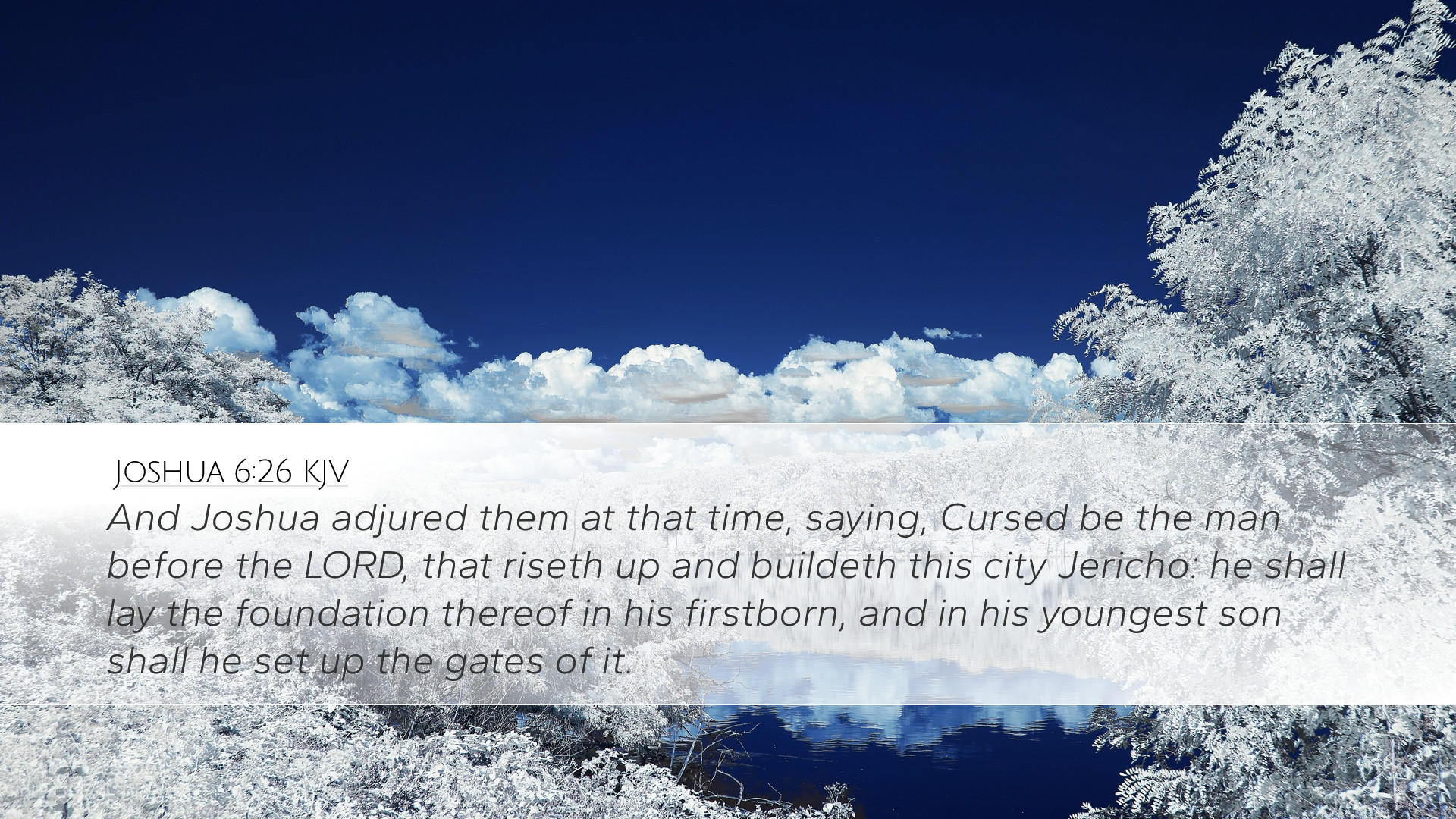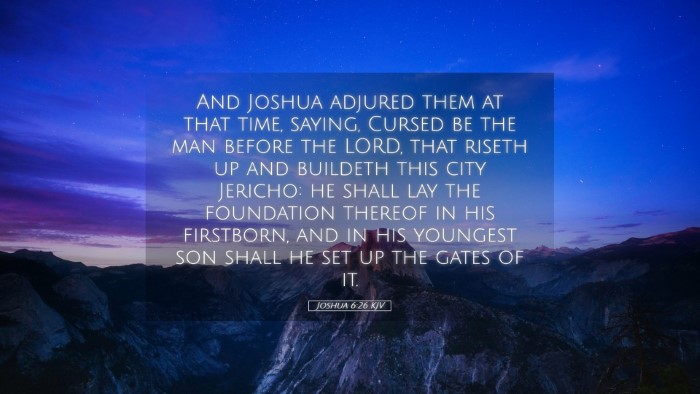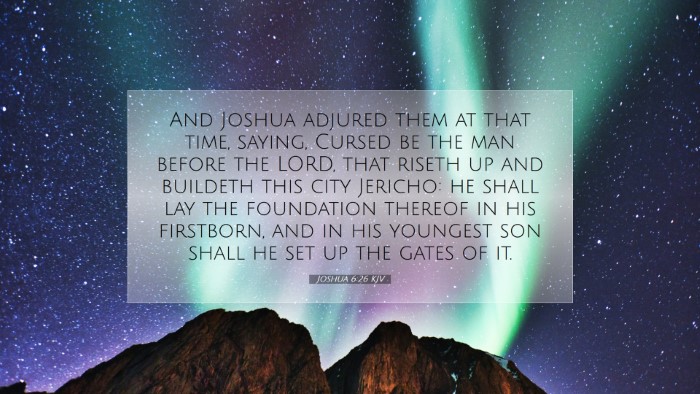Bible Commentary on Joshua 6:26
Scripture Reference: "And Joshua adjured them at that time, saying, Cursed be the man before the Lord, that riseth up and buildeth this city Jericho: he shall lay the foundation thereof in his firstborn, and in his youngest son shall he set up the gates of it." (Joshua 6:26, KJV)
Context of the Verse
This verse occurs at the conclusion of the narrative of the conquest of Jericho, a pivotal event in the Israelite's entry into the Promised Land. After the miraculous fall of Jericho's walls, Joshua issues a curse against anyone who would attempt to rebuild the city, emphasizing the complete destruction of what had been a stronghold against God's people.
The act of cursing reflects the severity of divine judgment upon sin and rebellion, serving as a warning to the Israelites regarding their covenant relationship with God.
Insights from Public Domain Commentaries
1. Matthew Henry’s Commentary
Matthew Henry notes that Joshua's curse represents the seriousness of the judgment against Jericho, which was devoted to destruction. He emphasizes that Jericho was an emblem of the flesh and worldly opposition to God's kingdom. The curse highlights the ultimate consequence of rebelling against the commandments of God and how some cities and people are set for destruction due to their ongoing defiance of God's will.
Henry also comments on the prophecy relating to the future rebuilding of Jericho, pointing out that this prophecy was fulfilled during the reign of King Ahab, and the repercussions of this act were dire for the builder, Hiel, who lost his firstborn and youngest son. This serves to illustrate God's faithfulness to His word and the bitter consequences that come from defiance against divine decree.
2. Albert Barnes' Notes on the Bible
Albert Barnes elaborates further on the prophetic implications of Joshua's words. He notes that the curse placed upon Jericho serves as a tangible reminder of God's judgment and sovereign authority. The decrees proclaimed by Joshua are not merely local but carry weight concerning God’s overarching plans for His people.
Barnes highlights the symbolism of Jericho as a city marked for destruction, paralleling the spiritual state of individuals and nations that oppose divine mandates. He stresses that the warning serves not only as a historical account but also as a moral lesson, encouraging believers to heed God's warnings and maintain faithfulness to His commands.
3. Adam Clarke’s Commentary
Adam Clarke interprets the curse in Joshua 6:26 as an expression of the severity of God's judgment against further transgression. He remarks on the lifetime implications of this curse, reflecting on how generations could suffer the consequences of sin and rebellion against God.
Clarke points out the particularity of the prophecy concerning Hiel the Bethelite who rebuilt Jericho during Ahab's rule. He connects this act with the broader narrative of Israel's disobedience and how decisions made by one can impact the entire community. Clarke advises readers to consider how faithfulness and obedience can lead to blessings while disobedience and rebellion invite judgment.
Theological Implications
The curse pronounced by Joshua raises significant theological themes. It underscores the seriousness of sin and the bastions of opposition that exist against God's purposes. Drawing from the insights of the commentators, we can see that:
- Divine Judgment: The verse serves as a reminder of God's judgment against sinful cities and people who stand in opposition to His will.
- Covenant Relationships: The implications of Joshua's curse highlight the covenant relationship between Israel and God. Such a covenant comes with blessings for obedience and curses for disobedience, reinforcing the seriousness of God's commands.
- The Future Impact of Sin: The specific mention of the consequences faced by future generations illustrates that the effects of sin can resonate beyond the immediate context, affecting families and communities.
- God’s Sovereignty: The fulfillment of the curse in the life of Hiel emphasizes God's sovereignty over history and human actions.
Application for Today
For pastors, scholars, and students of the Bible, Joshua 6:26 serves as a compelling call to examine the spiritual landscapes in which we find ourselves. The warnings embedded in this verse prompt believers to consider the impact of their choices, not only on their individual lives but also on those around them.
Additionally, this scripture encourages theological reflection on God's justice and mercy. While curses and judgments may seem harsh, they remind us that God desires holiness and righteousness among His people.
As we reflect on Joshua's proclamation, let it embolden us to seek holiness, warn others of the consequences of sin, and strive to build God-honoring communities that reflect His kingdom on earth.


